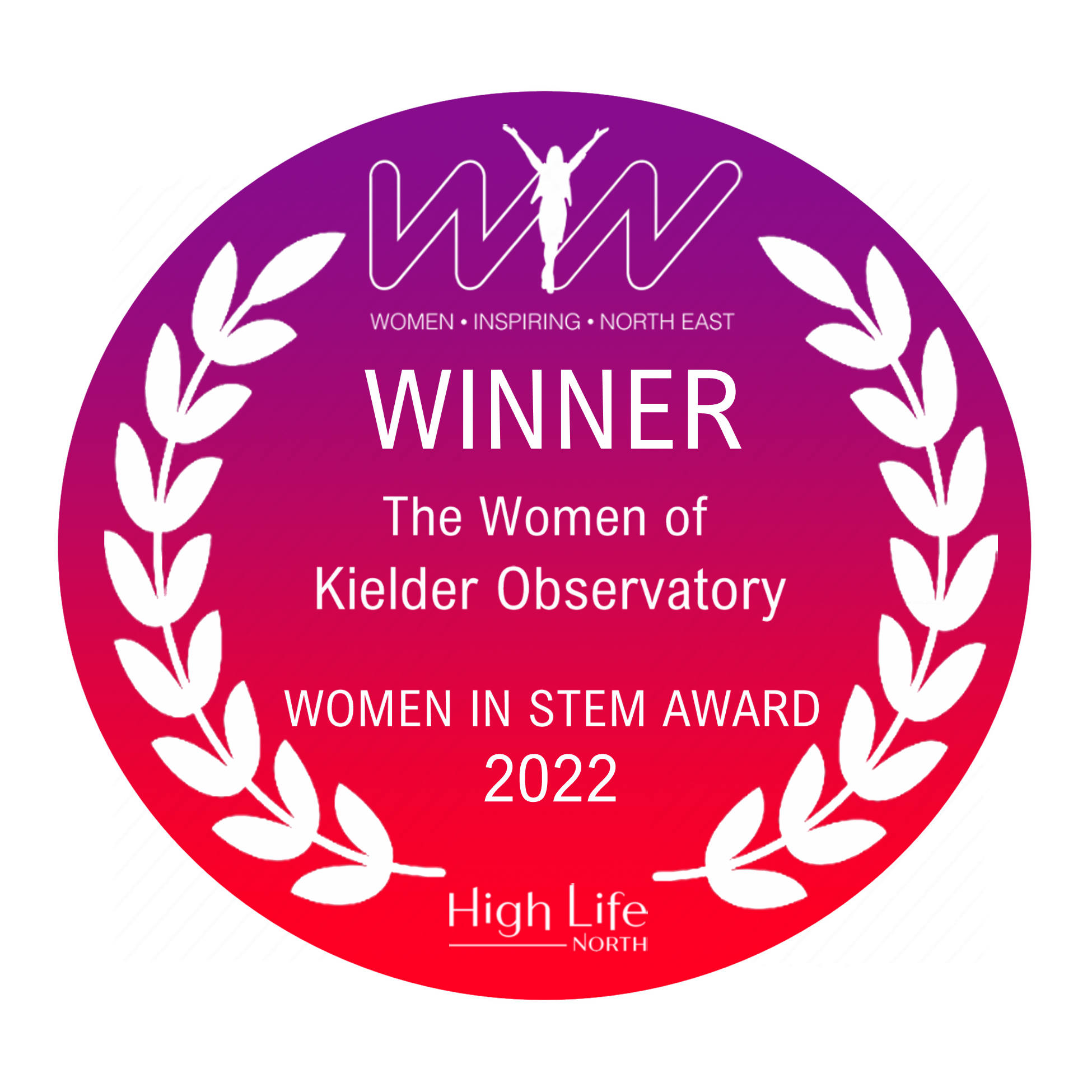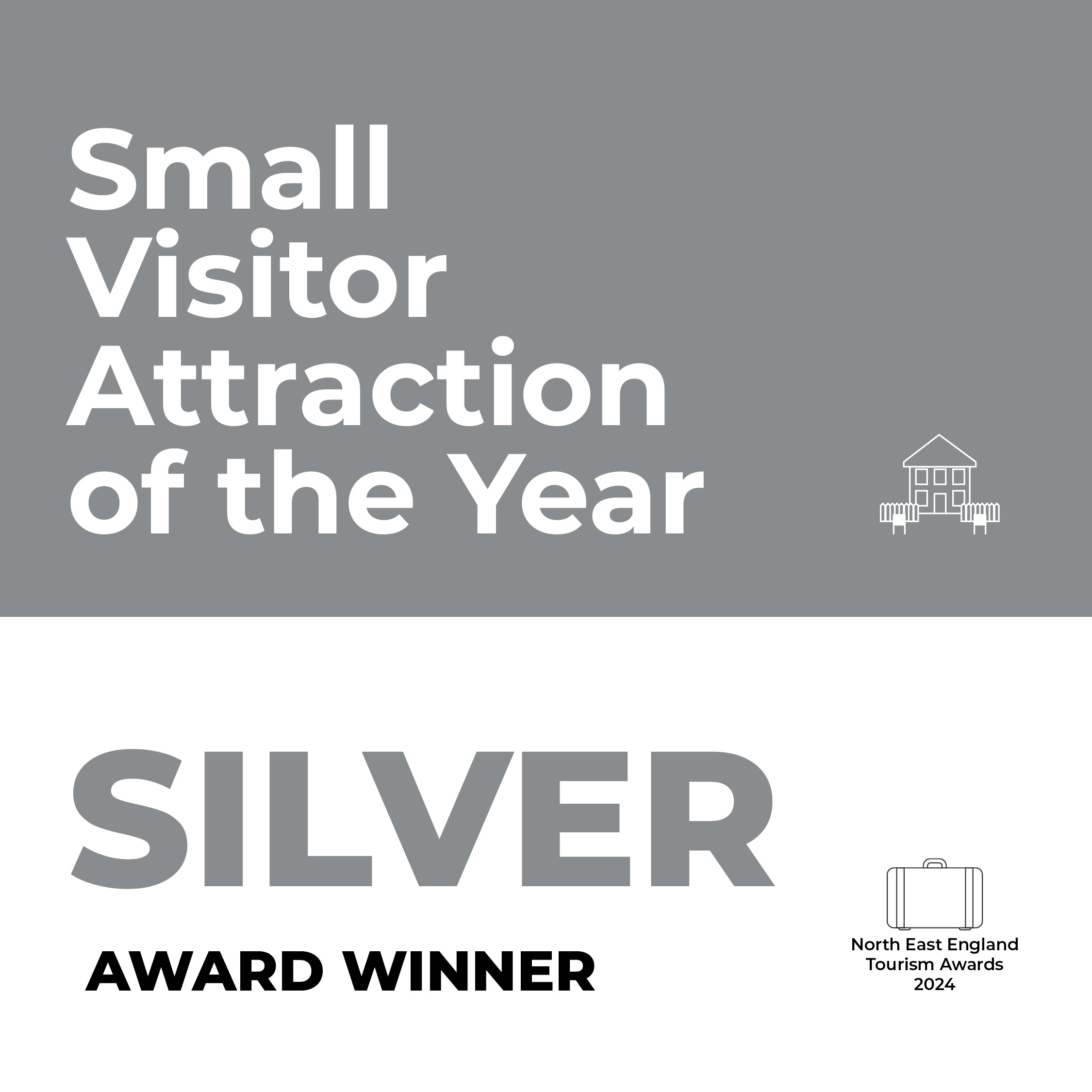Why Space?
The International Astronautical Congress (IAC) is fast approaching in October! This is where space agencies, industry, academic researchers and students from all over the world come together in one place to network, share ideas and give updates on recent endeavours and future goals and challenges. We thought this would be a great chance to review what the space industry does, and why it is so important.
Why Space?
In November last year our astronomer Rosie attended the 2023 UK Space Conference, where she learned a lot about the space industry and how important it is for modern society. In this article she looks back on her time at the UK Space Conference and will cover why the space industry matters. Iin the next article we'll look more closely at the IAC’s motto this year which is "Responsible Space for Sustainability" and cover current ways and ideas on how to tackle this problem.
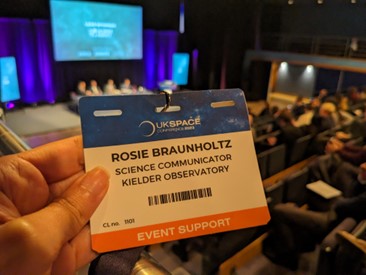
[Astronomer Rosie attending the UK Space Conference in 2023]
Introduction
Here at Kielder Observatory we aim to educate and inspire the public with knowledge about space and astronomy. Science communication isn’t perhaps the first thing you think of when you think “space industry”. What most people might think of are programmers behind computers writing code, mechanical engineers building rockets and business people in smart suits. However, even though we may be a small part of this sector mostly inundated with engineers, we are still an important piece. So, I went to the 2023 UK Space Conference in Belfast to give a voice to this part of the industry, and I wouldn’t be doing my job as a science communicator if I didn’t relay my findings!
This article will answer the “Why?” questions. While talking about missions to Mars, the Moon, or satellites going into space, a guest will challenge me about reasons to go to these places with a perplexed look. If you, reading this, have always been fascinated with space, you might think this a ridiculous question. “Why WOULDN’T we go to space” you may be thinking. The curiosity of humans has no end, our inquisitive minds want to know what’s out there. “Who wouldn’t!?” I hear you say. However, to the average person perhaps more down to earth (literally), this isn’t necessarily true. In my experience the public might not know the full scale or impact of the space industry, which is the fault of people like myself, not communicating the pros of the industry properly.
A lot of what’s on the news and on our Twitter feeds over the last few years tends to be the most shocking and eye-catching. Ie. Various billionaires having a contest seeing who can build their own rocket and get to space first. Or companies wanting to mine an asteroid entirely made of platinum. Looking at all the problems we have down here: cost of living, climate crisis, drought, famine, war… the list goes on, it can seem a ridiculous selfish use of resources, time and money to be spending on “adventures in space”. There are pros and cons to the space industry as with every industry, but you’ll be glad to hear that these captivating headlines only take up a very small part of the huge and extremely valuable industry we have today.
Satellites
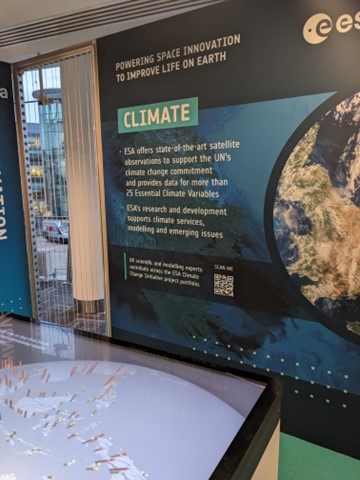
[PHOTO – ESA climate poster]
On day two of the conference, I took part in outreach in which various schools and children came to learn about space. I watched as various educators and industry personnel engaged in activities with the kids. One of my favourites was called “Did I use space today?” The children were given examples of going to school, using a computer, texting a friend, doing homework, eating cereal etc. and then were asked if any of these things use space. To the shock of the kids and some of the adults, most of the daily activities we do rely on satellites to work.
Our modern world is entirely dependent on the space industry. From using the internet in a remote location, having gps to navigate your way to work, satellite TV to watch the football, looking up the weather to know if you need an umbrella today, and paying for your cappuccino by card. Even things that may not seem like they would need satellites use it, like eating a bowl of cereal in the morning. Farmers use satellite imaging to know when to harvest their crops at the right time, to maximise efficiency.
It’s something I don’t think the children (or in fact anyone in the vicinity) will forget as the end of each example was finished with a scream of “I USED SPACE TODAY” which echoed through the entire convention centre.
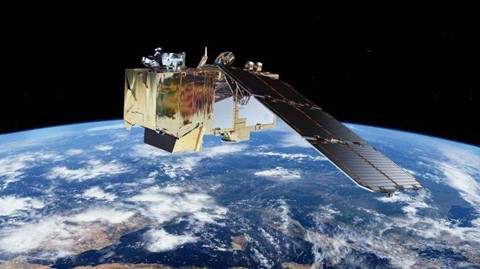
[Photo - satellite imaging, Sentinel-2. Credit: ESA/ATG medialab]
Ms. Aarti Holla-Maini, The Director of UNOOSA, spoke of many examples of how important satellites are to us currently and especially for tackling climate change. Satellites were crucial in taking the first accurate measurements of the Earth’s temperature. Today’s satellites can measure sea and land surface temperatures to unprecedented accuracy.
Earth observation satellites continuously monitor our ice caps from above to understand where and how it is changing. Other examples she gave were; monitoring illegal fishing; illegal deforestation of the rainforest; preventing food loss in microfarming in the ever increasing temperatures; monitoring and catching wildfires early; SAT-comms systems for remote communities; internet reaching isolated groups (Starlink); the list goes on.
So it’s safe to say satellite imaging is extremely important. The society we live in is accustomed but also dependant on it.
When you hear the words “Space Industry” this is what makes up most of it. From the 2022 UK size and health report of the UK Space Industry, Satellite Communications, Satnav and Earth Observations make up over 80% of the income, and most of this is Direct-to-Home Broadcasting (ie watching the footie on Sky Sports). This is boosting the economy and bringing lots of employment to the UK.
Next, let’s talk about what we generally share at the observatory: Space Exploration and Science!
Space Exploration/Telescopes
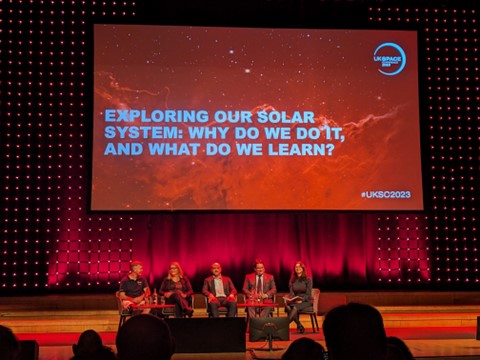
[Photo: Exploring our Solar System - why we do it and what do we learn?]
Space! Science! These are things like the ISS, rovers, and probes that we’re always talking about at Kielder Observatory and that make up a lot of our social media posts. This is the most (in my opinion) exciting part of the industry. Astronomy is one of the frontiers of science, there is so much we don’t know and so much to explore we’ve barely scratched the surface. The field tries to understand the fundamentals of the universe and pushes the boundaries of our knowledge by studying objects such as black holes and distant galaxies.
Science and Space Exploration requires a lot of government funding, as does the whole of the Space Sector -the UK government are planning to invest nearly £10 billion into the industry across the coming decade. And given that this is taxpayers money, you’d hope we’d be getting something out of it. At first glance it may seem interesting, but not particularly advantageous to life on Earth to know how old the solar system is, or how galaxies evolve, or when exactly the volcanoes on Mars were active. Humans are curious creatures. We want to know things! Where did we come from? Where are we going? Are we alone? And understanding the world around us gives benefit to society as a whole. Today engineers use Newton’s laws of gravity and knowledge of internal forces to build grand designs like bridges and tall buildings. Without knowing the sun is made of mostly hydrogen, we wouldn’t know that it creates energy with nuclear reactions, and thus that discovery led to the development of nuclear energy. The knowledge gained by astronomy and space science advances us and can be applied over many scientific fields.
And in the pursuit of science, great technologies are created along the way. “Space drives innovation.” Being at the frontier of science, astronomy drives the development of cutting-edge telescopes (like the James Webb) and detectors to space probes and computer simulations. Software algorithms used to sharpen images of the moon are now used by medical researchers for MRI scans; insulin pumps were invented to monitor astronauts vital signals; NASAs innovations in robotics and shock-absorption/comfort materials helps the private sector produce more advanced prosthetics for humans and animals. Currently astronauts on the ISS are looking into complex human health issues such as Alzheimer's.
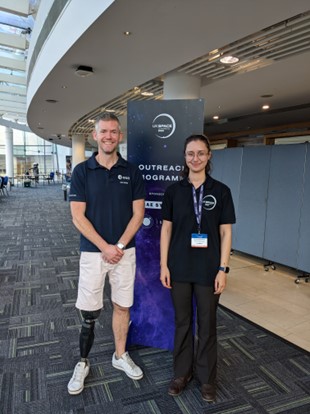
[Me and astronaut John McFall]
One part of Space Exploration which I mentioned in the introduction is Space Tourism, ie civilians going into space. This is an extremely small part of the industry, making up only 0.04% of the UK Space Industry Income (about £6 million in 2020/2021).
Difficult Questions
Even after understanding how space exploration can improve life here on Earth, you still may be thinking that all these substantial resources being spent “out there” should be spent on more pressing matters (poverty, hunger etc). Shouldn’t such a large budget be spent on better things?
All these issues aren’t really to do with the space sector at all, and more to do with wider problems in society, requiring systemic changes and broader conversation. There are definitely some ethical concerns when it comes to space exploration. Such as commercialisation, extracting and exploitation of resources in our solar system, and the impact on other planets and moons and possibly other life out there. There should be a cautious and ethical approach to space exploration to avoid unintended consequences.
Conclusion
The UK government spends around 0.08% of its total spending on space. For context, it spends around 18% on healthcare and 1% on overseas aid (What does the government spend money on 2022/2023, National Space Strategy ) For being a small part of our spending, space plays a vital role in our lives. From the National Space Strategy: “The space sector is a large part of the UK’s economy, employing over 45,000 individuals and worth over £16.4 billion per year. It also presents many opportunities for the future and is projected to be worth £490 billion by 2030.”
Hopefully I’ve convinced you that the Space Sector is important. Stay tuned for the next article covering "Responsible Space for Sustainability", and current problems and solutions.
References
https://www.gov.uk/government/publications/the-size-and-health-of-the-uk-space-industry-2022/size-health-of-the-uk-space-industry-2022#section4
https://www.discover.ukri.org/a-brief-history-of-climate-change-discoveries/index.html
https://www.rmg.co.uk/stories/topics/why-satellites-are-critical-fighting-climate-change
https://www.asc-csa.gc.ca/eng/satellites/everyday-lives/10-ways-that-satellites-helped.asp
https://www.gov.uk/government/publications/the-size-and-health-of-the-uk-space-industry-2022/size-health-of-the-uk-space-industry-2022#section4
https://committees.parliament.uk/publications/34642/documents/190787/default/#:~:text=Over%20the%20spending%20review%20we,beginning%20financial%20year%2022%2F23.
https://www.nao.org.uk/work-in-progress/national-space-strategy-and-the-uk-space-agency/#:~:text=In%202023%2C%20government%20announced%20that,UK%20Space%20Agency%20(UKSA).
https://www.discovermagazine.com/the-sciences/much-of-your-daily-life-depends-on-discoveries-made-by-astronomers
https://www.nasa.gov/missions/station/space-station-leads-to-breakthroughs-in-human-health-on-earth/
https://assets.publishing.service.gov.uk/media/64afdb40c033c1001080623b/the_case_for_space.pdf
https://www.nao.org.uk/work-in-progress/national-space-strategy-and-the-uk-space-agency/
https://ifs.org.uk/taxlab/taxlab-key-questions/what-does-government-spend-money







